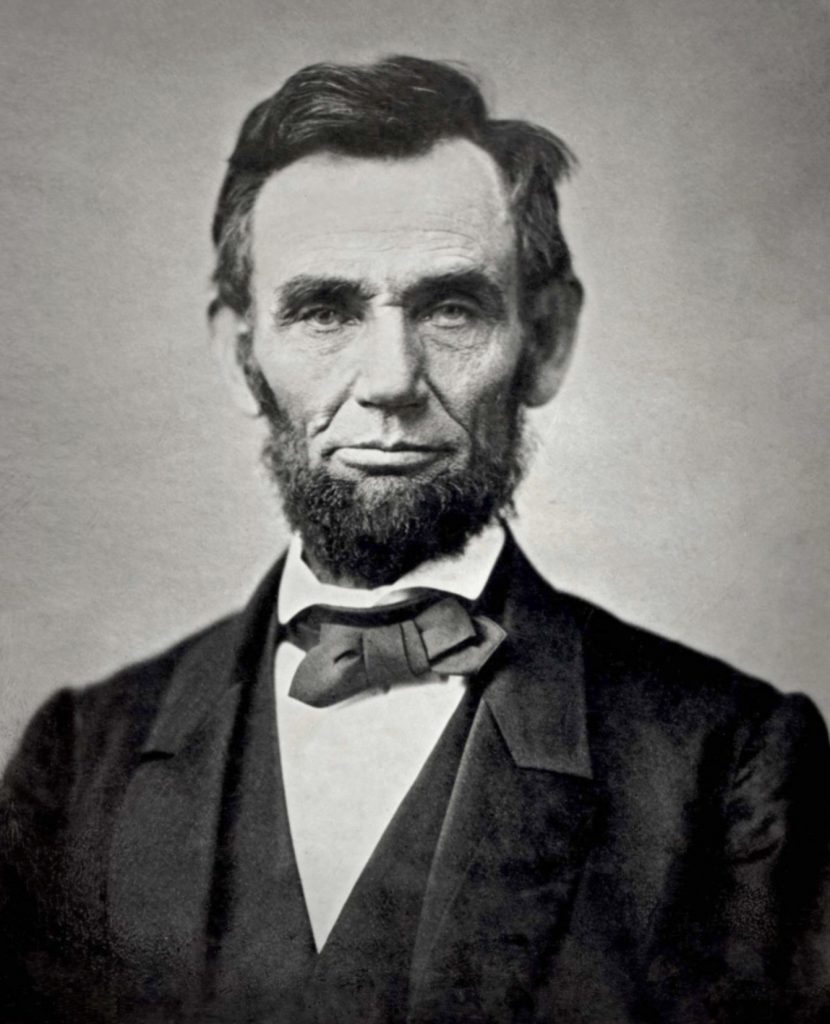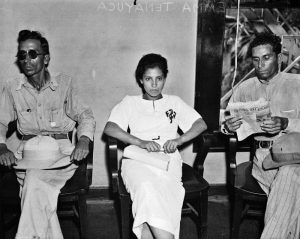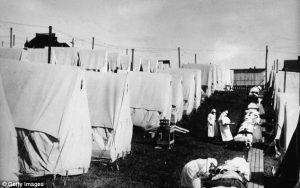Imagine being kidnapped or sold into captivity, forced into submission through violent beatings, torture, and intimidation, sold on the auction block to the highest bidder, and being forced to work for free under the most cruel conditions. And imagine that it is all perfectly legal. This was the reality for blacks who endured the horrific institution of enslavement in our nation’s early years. For enslaved blacks, it was more than being forced to work without compensation, but a way of life.
It’s 1861, and the American Civil War has just begun, with Abraham Lincoln as President of the United States. The northern States are excelling in manufacture, while the southern States, based on a system of large-scale farming, depend on the labor of African-American slaves to grow their crops. Growing abolitionist sentiment in the North after the 1830s and northern opposition to slavery’s extension into the new western territories, led many southerners to fear that the existence of slavery in America was in danger.1
On November 6, 1860 Abraham Lincoln was elected President. It was a result that outraged the southern states. The Republican party had run on an anti-slavery platform, which led the southerners to believe that they were not welcome in the Union. One month later, on December 20, 1860, South Carolina became the first southern state to secede.2 As tensions grew stronger against Lincoln, by February 1, 1861, six more states—Mississippi, Florida, Alabama, Georgia, Louisiana, and Texas—had seceded from the Union. These states formed the Confederate States of America, with Jefferson Davis, a Mississippi Senator, as their provisional president.
Lincoln felt it his duty as president to maintain the Union. Doing so, he never committed to the ending of slavery or getting rid of the Fugitive Slave Law. However, Lincoln’s comments were not enough to satisfy the Confederacy. This lead them to attack on April 12, 1861 Fort Sumter in South Carolina, which began the Civil War. To keep the Union together, Lincoln insisted that the war was not about slavery, but about preserving the Union. His words were not aimed at the southern states; however, the majority of northern white farmers were not interested in fighting for the freedom of southern slaves, nor give any African Americans any rights.3
Because there was no consistent policy regarding fugitives once the war began, the government had a difficult time deciding what to do with escaped slaves. This led to individual military commanders making their own decisions regarding the thousands of slaves seeking the protection of the Union army. On August 6, 1861, a solution was established, that fugitive slaves would be considered “contraband of war” if their labor had been used to aid the Confederacy in any way. If any were found to be in contraband, they were declared to be free, and subject to the protection of the Union army. Although the contraband slaves were declared free, Lincoln insisted that the purpose of the war was still to save the Union, not to free slaves.4 The occasion for changing this stance came about as a result of the Battle of Antietam.
The battle had taken place near Antietam Creek in Sharpsbug, Maryland. On September 16, 1862, the Confederate Army and the Union Army both contributed to the bloodiest day in American history, with 23,000 casualties. No other single day in American history before or since has been so deadly. Nearly one out of every four soldiers engaged was a casualty: killed, wounded, or captured. The violent fighting would be remembered by many who were there as the most intense of the war. Until the Battle of Antietam, the Confederate army had been focusing on a defense strategy. The majority of their major battles had all been fought on Southern soil. However, after the achievement of the Second Battle of Bull Run, General Lee had decided that it was the appropriate time to start focusing more on their offense than defense. It was September 3, 1862, when the Confederate army, led by General Robert E. Lee, entered the state of Maryland. Their hope was to invade the north all the way to Pennsylvania. Both General Lee and Jefferson Davis, Confederate President, believed that a successful invasion would convince France and Great Britain to officially recognize the Confederacy as a nation, and perhaps even enter the war on their behalf. The Union held off the invasion of the Confederacy at Antietam, although President Abraham Lincoln was not satisfied that the Confederates were able to retreat back to Virginia. However, the battle was declared a Union victory and Lincoln followed the battle with the Emancipation Proclamation, which officially made slavery a second cause of the war.5
On July 22, 1862, Lincoln read a draft of the preliminary Emancipation Proclamation to his cabinet. On this document, it announced “…that all persons held as slaves within said designated States, and parts of States, are, and henceforward shall be free; and that the Executive government of the United States, including the military and naval authorities thereof, will recognize and maintain the freedom of said persons.”6 Secretary of State William H. Seward was on board with Lincoln, but persuaded him to wait until the Union had had a victory before issuing the document. After the Union victoriously won the Battle of Antietam, it was time for Lincoln to issue the preliminary Emancipation Proclamation on September 22, 1862. It warned the Confederate states to quit the war and surrender by January 1, 1863, or their slaves would be proclaimed freed. Lincoln was giving the South a choice: end the war now and keep your slaves, or keep fighting and risk losing the war and the institution of slavery. However, many argued that the proclamation didn’t actually free any slaves or destroy the institution of slavery itself—it still only applied to states in active rebellion, not to the slave-holding border states or to rebel areas already under Union control. In reality, it simply freed Union army officers from returning runaway slaves to their owners under the national Fugitive Slave Act of 1850. Despite all opposition, Lincoln was firm and officially pronounced the Emancipation Proclamation on January 1, 1863.”That on the first day of January, in the year of our Lord one thousand eight hundred and sixty-three, all persons held as slaves within any State or designated part of a State, the people whereof shall then be in rebellion against the United States, shall be then, thenceforward, and forever free.”7 Those words were issued by Abraham Lincoln on the final draft of the Emancipation Proclamation. In the midst of the struggle, Lincoln drafted his Emancipation Proclamation, calling for the freedom of the slaves. Months later, in November, he delivered his most famous speech, the Gettysburg Address. This speech summed up the principles for which the federal government still fought to preserve the Union.8

The purpose of the Civil War changed during the war. The North was not only fighting to maintain the Union, as it had at the beginning of the war, but it was also fighting to end slavery. African Americans rushed to enlist, once the proclamation was established. The Union army eventually consisted of over 179,000 African-American men that served in over 160 units. The 179,000 men both included free African Americans from the North and runaway slaves from the South who enlisted to fight. Even though there had been African Americans who had served in the army and navy during the American Revolution and in the War of 1812, none were able to enlist due to a 1792 law that stripped them from bearing arms in the U.S. Army. President Abraham Lincoln also had concerns over accepting African American men into the military, too. Doing so might persuade border states like Maryland, Kentucky and Missouri to secede. Black soldiers faced discrimination as well as segregation into “Black” units, and some only earned $7 per month, plus a $3 clothing allowance, while white soldiers commissioned $13 per month, plus $3.50 for clothes.9
On April 18, 1865, the Civil War ended. The Confederate army surrendered to the Union army. Approximately 620,000 Americans died in the four-year war, with tens of thousands injured. In January 1865, a new chapter in American History opened as the 13th Amendment was passed, which officially abolished slavery in the United States and freed more than four million African Americans. More importantly, the 14th Amendment was passed in June 1865, which granted citizenship to all people born in the United States, and for the first time, granted citizenship to all former slaves. In 1869, the 15th Amendment was passed, which guaranteed the right for any American male citizen to vote no matter what their race. The Civil War was a significant event in United States history. It showed that the North’s victory proved that democracy worked. Also it was a huge step for the African-American people, to fight for what they deserved…freedom.
- “The Emancipation Proclamation,” Emancipation Proclamation (Primary Source Document) (August 2017): 1. ↵
- Brian Lamb and Susan Swain, Abraham Lincoln Great American Historians on our Sixteenth President (New York: Public Affairs, 2008), 56-61. ↵
- Allen C. Guelzo, Lincoln’s Emancipation Proclamation: the end of slavery in America (New York: Simon & Schuster, 2004), 90-100. ↵
- Allen C. Guelzo, Lincoln’s Emancipation Proclamation: the end of slavery in America (New York: Simon & Schuster, 2004), 159. ↵
- James M. McPherson, Crossroads of freedom: Antietam (Oxford, New York: Oxford University Press, 2002), 68-72. ↵
- “The Emancipation Proclamation,” Emancipation Proclamation (Primary Source Document). ↵
- “The Emancipation Proclamation,” Emancipation Proclamation (Primary Source Document). ↵
- Salem Press Biographical Encyclopedia, January 2015, s.v. “Abraham Lincoln,” by Joseph E. Suppiger. ↵
- Brian Lamb and Susan Swain, Abraham Lincoln Great American Historians on our Sixteenth President (New York: Public Affairs, 2008), 74-75. ↵



56 comments
Samuel Vega
The author describes the foundation of the country that is at war with its self. The focus of the article was not on the war; but on maintaining the Republic. The article discusses the birth of the Emanicpation Proclamation and takes the reader through the 14th Amendment – which gave citzenship to everyone born in the United States and gave citzenship to all former slaves. I enjoyed reading the article and felt the author did a good job describing the issue of slavery as well as the various steps that were taken to end slavery and treat blacks as citizens.
Lesley Martinez
I believe the history of wars is such an important topic and this article does a great job of addressing an important point. The nature of the Civil War is often confused and forgotten that the first cause was an attempt to save the Union and the second being the Emancipation Proclamation. It’s interesting to read that over 179,000 African American men enlisted in the war after the proclamation was established. Fortunately, the Civil War ended with the passing of the 13th Amendment and influenced others like the 15th. Great article!
Sara Guerrero
In a way I felt as though Lincoln knew that his actions towards slavery and wanting to free slaves would bring tensions and conflict towards his way. When he was elected president he had the power and had to show that he meant what he said. I think the Civil War was an unnecessary event, but the country was split between two decisions and war at the time was the only solution. I think that Lincoln was just in his whole processes with the Emancipation Proclamation and giving chances to those who were persistent on keeping slaves.
Mauro Bustamante
This article was really well written it showed that the purpose of how the Civil War changed during the war where Lincoln would release the Emancipation Proclamation making the war being about the freedom of slavery. The North was not only fighting to maintain the Union, as it had at the beginning of the war, but it was also fighting to end slavery. Later in history, the 15th Amendment was passed, which guaranteed the right for any American male citizen to vote no matter what their race which made it a huge step for the African-American people, to fight for what they deserved…freedom.
Aaron Peters
I appreciate the perspective the article was written from, centering on Lincoln’s decision to issue the Emancipation Proclamation during the civil war or after the Union’s victory was assured. It’s interesting that in early drafts, freeing the slaves was threatened to the south, which ultimately seemed to have been scrapped. I suppose they were attempting to coerce the south into surrendering by threatening them with why they left the union in the first place.
Priscilla Poorbaugh
The fact that the south “believed that a successful invasion would convince France and Great Britain to officially recognize the Confederacy as a nation, and perhaps even enter the war on their behalf’ is so silly to me because they literally had already abolished slavery. Anyways, I really liked the article because it was so factual. I like how the author told the truth about Lincoln and his impact on freeing the slaves. Although he did free the slaves, which is amazing, he was still discriminating against them.
Hannah Hennon
This article did an amazing job at describing the Civil War from beginning to ending and focusing on the Emancipation Proclamation. I never knew that Lincoln threatened the southern states to surrender by a certain date, or he would release the Emancipation Proclamation making the war being about the freedom of slavery, as well as, the southern states seceding the union.
Sydney Hardeman
One thing that a lot of people fail to realize is that there is a clause in the 13th Amendment that says no person can be enslaved…”except as a punishment for crime.” And people in the South took this and ran with it, convicting freed slaves for harmless crimes such as loitering and vagrancy, which forced them to provide prison labor. This is known as convict leasing.
Mauro Bustamante
Abraham Lincoln issued this freedom of slavery that did cause uprisings from commoners, all while pushing for emancipation and eventually, the passing of the 13th Amendment of the Constitution. The emancipation proclamation is one of the most critical moments in history that had a major impact on, and helped, many people within the United States. In 1869, the 15th Amendment was passed, which guaranteed the right for any American male citizen to vote no matter what their race, this made a huge positive impact and was done for the common good in everyone interest.
Charli Delmonico
This article was so enlightening! I found it incredibly interesting that the main reason for the Civil War was not entirely due to slavery and the Union’s desire to free all persons of race, but due to Lincoln’s desire to preserve the Union. I understand that there were prejudices against African Americans in the north, but I don’t understand their reasoning for not encouraging African-Americans to fight in the military (rather than being wary of the prospect). I find it interesting that the salary of the white mail soldiers at that time is what many teenagers nowadays make in one hour; the differences in the value of money are incredibly different. I want to know more about how the Republican Party was the group that was fighting against slavery since many political people nowadays associate Republicans with racism almost automatically.